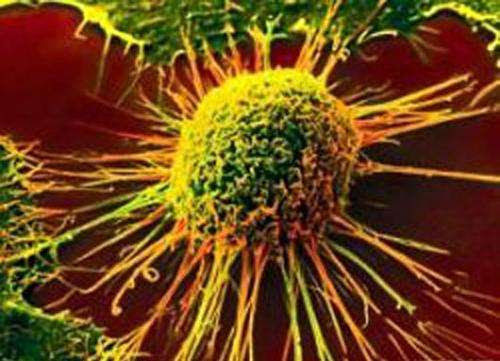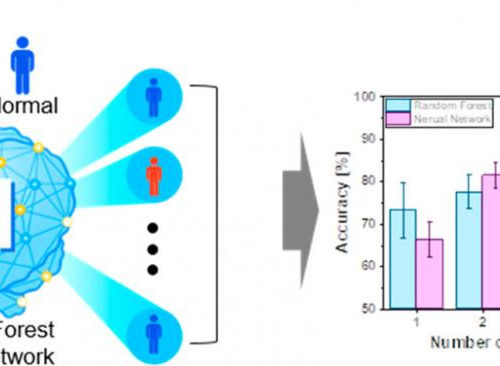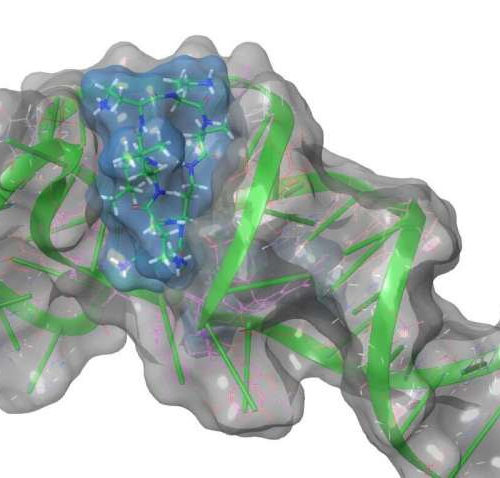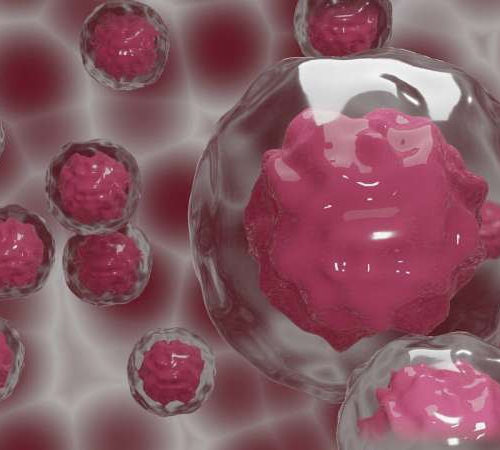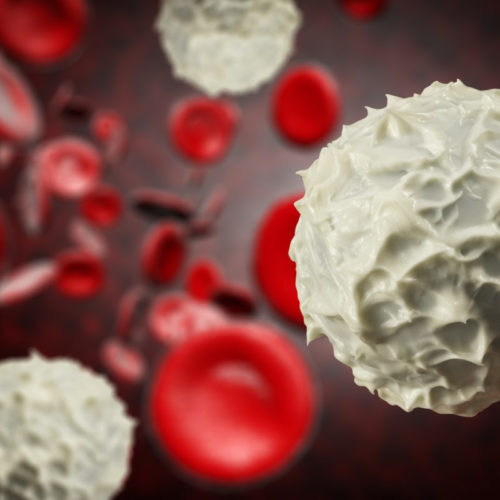by University of Texas M. D. Anderson Cancer Center Researchers from The University of Texas MD Anderson Cancer Center have developed the first comprehensive framework to classify small-cell lung cancer (SCLC) into four unique subtypes, based on gene expression, and have identified potential therapeutic targets for each type in a study published today in Cancer Cell. SCLC is...
Year: <span>2021</span>
Memory fail controlled by dopamine circuit, study finds
by The Scripps Research Institute Scripps Research, Florida Neuroscience Professor Ron Davis, PhD, has discovered a mechanism underlying transient forgetting. Credit: Scripps Research In a landmark neurobiology study, scientists from Scripps Research have discovered a memory gating system that employs the neurotransmitter dopamine to direct transient forgetting, a temporary lapse of memory which spontaneously returns. The study adds a new pin to...
Target of new cancer treatment valid for breast as well as blood cancers: study
UNIVERSITY OF ALBERTA FACULTY OF MEDICINE & DENTISTRY IMAGE: UNIVERSITY OF ALBERTA ONCOLOGY RESEARCHER JOHN MACKEY (LEFT) AND CELL BIOLOGIST LUC BERTHIAUME ARE COLLABORATORS ON NEW RESEARCH SHOWING THAT PCLX-001, AN ANTI-CANCER DRUG SET TO BEGIN CLINICAL TRIALS THIS YEAR,MAY WORK AGAINST BREAST CANCER AS WELL AS LYMPHOMA CREDIT: UNIVERSITY OF ALBERTA One more piece...
Cancer can be precisely diagnosed using a urine test with artificial intelligence
NATIONAL RESEARCH COUNCIL OF SCIENCE & TECHNOLOGY IMAGE: The set of sensing signals collected for each patient were then analyzed using ML to screen the patient for PCa. Seventy-six urine samples were measured three times, thereby generating 912 biomarker signals or 228 sets of sensing signals. We used RF and NN algorithms to analyze the multimarker signals....
Does aspirin lower colorectal cancer risk in older adults? It depends on when they start.
MASSACHUSETTS GENERAL HOSPITAL BOSTON – Regular aspirin use has clear benefits in reducing colorectal cancer incidence among middle-aged adults, but also comes with some risk, such as gastrointestinal bleeding. And when should adults start taking regular aspirin and for how long? There is substantial evidence that a daily aspirin can reduce risk of colorectal cancer...
Researchers ID potential target for anti-viral drugs to battle COVID-19
by Ohio University Credit: Ohio University While the world awaits broad distribution of COVID-19 vaccines, researchers at Ohio University just published highly significant and timely results in the search for another way to stop the virus—by disrupting its RNA and its ability to reproduce. Dr. Jennifer Hines, a professor in the Department of Chemistry and Biochemistry, along with...
Spontaneous cell fusions amplify genetic diversity within tumors
by H. Lee Moffitt Cancer Center & Research Institute Credit: CC0 Public Domain Evolution within groups of tumor cells follows the principles of natural selection, as evolution in pathogenic microbes. That is, the diversity of cellular characteristics within a group leads to differences in the ability of cells to survive and divide, which leads to selection for cells...
Ring-shaped compounds better equip gold nanoparticles to fight cancer
By Nick Lavars January 21, 2021 Artist’s impression of gold nanoparticles, a promising tool in the fight against cancer katerynakon/DepositphotosVIEW 2 IMAGES Of the many weapons science has come to offer in the fight against cancer, ones that are showing plenty of potential are gold nanoparticles. We have seen how these could be grown inside tumors to tackle...
Designer DNA molecule helps hunt down cancer stem cells in blood
By Michael Irving January 20, 2021 Multiple myeloma attacks the white blood cells, but a new treatment may help ezumeimages/Depositphotos VIEW 2 IMAGES Like weeds that grow back if you don’t remove the roots, cancer can keep returning thanks to lurking stem cells. Now, researchers have developed a “designer” DNA segment that can eradicate these cancer stem...
‘Exercise protein’ doubles running capacity, restores function and extends healthy lifespans in older mice
by Beth Newcomb, University of Southern California Credit: CC0 Public Domain A new study shows that humans express a powerful hormone during exercise and that treating mice with the hormone improves physical performance, capacity and fitness. Researchers say the findings present new possibilities for addressing age-related physical decline. The research, published on Wednesday in Nature Communications, reveals a detailed look...

